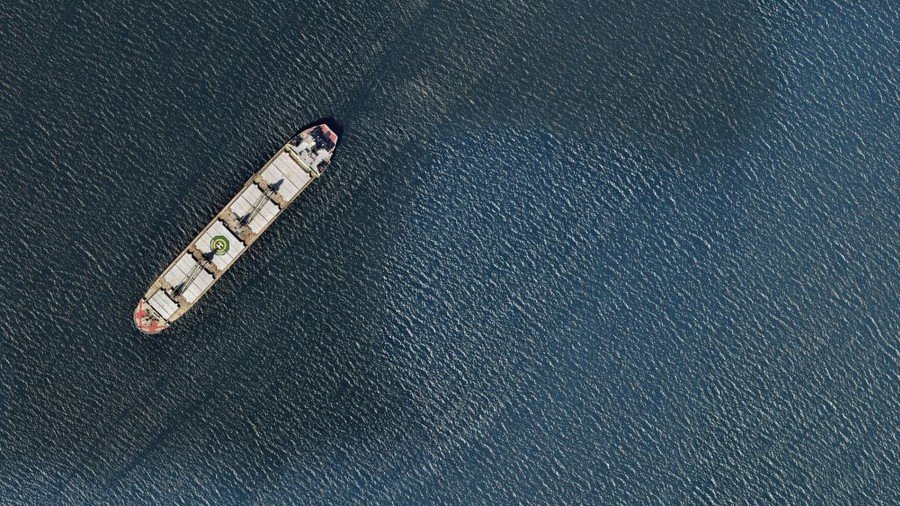US tells world to steer clear of Iranian oil tankers

The US State Department has warned nations, allowing Iran’s shipping vessels into their territorial waters and ports, of potential risks connected to insurance liabilities amid the recently introduced sanctions.
“If Iranian tankers make calls to your ports or transit through your waterways, this comes at great risk,” Brian Hook, the State Department's special representative on Iran policy told journalists.
After global insurers withdrew coverage from Iranian vessels, the Islamic Republic will have to turn to domestic insurance corporations, which in turn won’t be able to meet the expense in case of maritime accidents that could run into billions of dollars, according to the top official.
Special Rep. Hook: We want to alert nations of the risk of doing business with #Iran’s shipping sector. If Iranian tankers make calls to your ports or transit through your waterways, this comes at great risk…Protect your port, protect your business, and promote maritime safety. pic.twitter.com/eseAnu9DAd
— Department of State (@StateDept) November 7, 2018
“Oil spills and accidents involving tankers are extremely costly. From the Suez Canal to the Strait of Malacca — and all chokepoints in between — Iranian tankers are now a floating liability,” Hook said.
“Countries, ports, and canal operators, and private firms should know they will be likely responsible for the cost of an accident involving a self-insured Iranian tanker,” he added.
The top official recalled a fatal accident with an Iranian-owned oil tanker Sanchi in the East China Sea in January, which resulted in 32 deaths, a massive oil spill and loss of the vessel. At the same time, Hook expressed hope that there will be no accidents.
The envoy also accused the Islamic Republic of trying to evade US sanctions by turning off their satellite transponders attached to vessels to prevent collisions.
Trump administration officially imposes sanctions on Iran’s oil exports...Iran’s oil exports might actually increase! Why?READ MORE: https://t.co/0zi8HdCVbN
— RT (@RT_com) November 8, 2018
“This tactic is a maritime security threat. These transponders are designed to maximize visibility at sea and turning them off only increases risk of accidents and injuries,” Hook said. “Self-insured Iranian tankers engaging in unsafe behavior, with many tons of crude oil on board, are courting environmental and financial disaster.”
In May, US President Donald Trump withdrew from the Joint Plan of Action (JPOA), an international nuclear deal clinched between Tehran and a broad alliance of world powers. Shortly after that the White House announced they would re-impose unilateral sanctions against the Islamic Republic.
The first round of penalties, which included cars, carpets, metals trading and access to the US dollar, entered force in August. The second batch came into effect on November 6, hitting oil and shipping sectors. Washington also threatened secondary sanctions on nations and corporations that continue to do business with Tehran.
For more stories on economy & finance visit RT's business section














